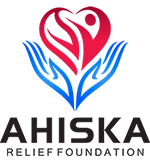Frequently Asked Questions
What is Zakat?
Zakat is one of the five pillars of Islam and refers to the amount that is accepted as a measure of wealth (nisab) to be paid by people who own property to those in need.
Who is obligated to pay Zakat? Whom is eligible to receive Zakat?
Zakat is obligatory for Muslims who have reached puberty. One year should have passed since the person paying the zakat earned the assets and should be more than what is needed to cover a year’s worth of debt and basic needs.
What is the Nisab amount?
Nisab is the name given to the minimum measure of wealth set for worship such as Zakat. This measure is 20 miqqal (80.18g) in gold, 5 camels, 30 cattle, 40 in sheep and goats.
How is Zakat calculated?
When calculating zakat, the zakat rate is calculated on the remaining property after deducting the current debts. You can calculate your Zakat amount according to the following:
- 1/40 of gold, silver, money, trade goods and sheep and goats,
- 1/30 of cows, buffalo and similar cattle,
- Zakat is given at the rate of 1/10 in agricultural products. If a person waters these crops by spending money then they give Zakat at the rate of 1/20,
- 1/10 of the net income or 1/20 of the gross income of goods such as houses, shops, factories, motor vehicles, and machinery that generate rental income.
Who can Zakat be paid to?
People who are eligible to receive Zakat are specified in the Qur’an. These are the poor and the needy, Zakat officers, those whose hearts will be won over, slaves who will be freed, those in debt, those who are stranded, and for jihad.
Who can Zakat not be paid to?
Zakat should not be paid to people who are not Muslims and those who are eligible to give Zakat cannot do so to their first-degree relatives (for instance, mother, father, grandparents, children, grandchildren). In addition, a husband and wife cannot give Zakat to each other.
Is Zakat paid for valuable jewelry?
Zakat is not paid for jewelry apart from gold and silver.
Can Zakat be given to charity organizations? Is it permissible to donate Zakat to charity organizations?
There is no religious objection to giving Zakat and fitrah to associations, foundations, institutions, and other mutual aid funds that are managed by people who are known to collect Zakat and fitrah and who only spend it on places specified in the Verse 60 of Surah al-Tawba.
Can Zakat be paid through bank transfers?
Just as Zakat can be paid by hand, it can also be paid by bank transfers.
Can money saved for essential items be paid as Zakat?
Those who are committed to a written or verbal agreement to secure their basic needs such as shelter, clothing and food, which are necessary for the continuation of a safe and healthy life, are not required to give Zakat.
When is Zakat given?
Zakat can be paid throughout the year at any time the provider wishes.
Can the Ahiska Relief Foundation collect Zakat?
There is no religious objection to giving Zakat and fitrah to associations, foundations, institutions, and other mutual aid funds that are managed by people who are known to collect Zakat and fitrah and who only spend it on places specified in Verse 60 of Surah al-Tawba. Your Zakat donations are delivered to hundreds of thousands of people in need who are eligible to receive Zakat in the form of cash livelihood support, food or scholarships not only during Ramadan but also throughout the year. A fatwa given by the Presidency of Religious Affairs, High Council of Religious Affairs dated 27 June 2014, numbered 510, states that ‘There is no religious objection to depositing zakat into Ahiska Relief accounts to be spent on providing shelter, clothing, hygiene and other similar needs to people who have been affected by disasters, war, civil unrest in countries where there are Muslim communities.’
Where does the Ahiska Relief use Zakat funds?
Zakat assistance is made to those who have been identified in social analyses as living under the poverty line and not being able to afford primary needs. These people include but are not limited to the elderly, women, and people with disabilities, chronic illnesses, immigrants, disaster victims, the homeless, orphans, students, rough sleepers, and those who are marginalized from society.
Zakat can be paid in kind and/or in cash at once or regularly. This assistance is made in the following ways: livelihood support, food aid, maternity aid, clothing aid, emergency disaster aid, shelter aid, education, and health aid.
How are Zakat payments made to the Ahiska Relief deducted from Tax Assessment?
- Cash Zakat
All of the cash donations and aid made to the Ahiska Relief with a receipt can be deducted from declared income. Individuals and corporations filling tax returns can deduct all of their donations to the Ahiska Relief from their taxable earnings without any percentage or amount limit
- In-Kind Zakat
Companies can benefit from tax exemption by recording their food, hygiene, clothing, and fuel donations to the Ahiska Relief, which works according to the Food Banking rules, as expenses.
Ask Your Question
info@ahiskarelief.com
Call Us
(937-823-0869

